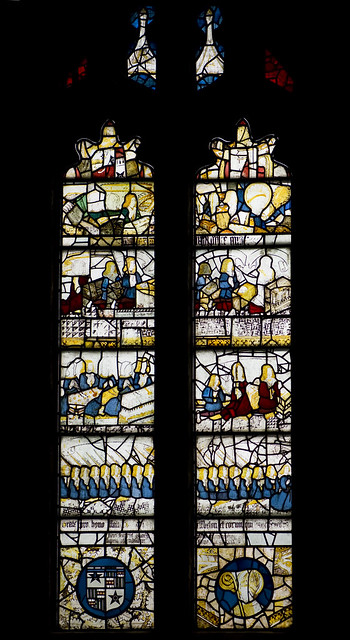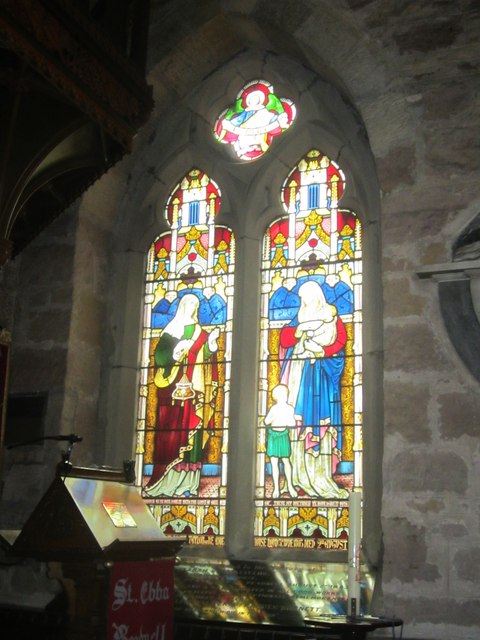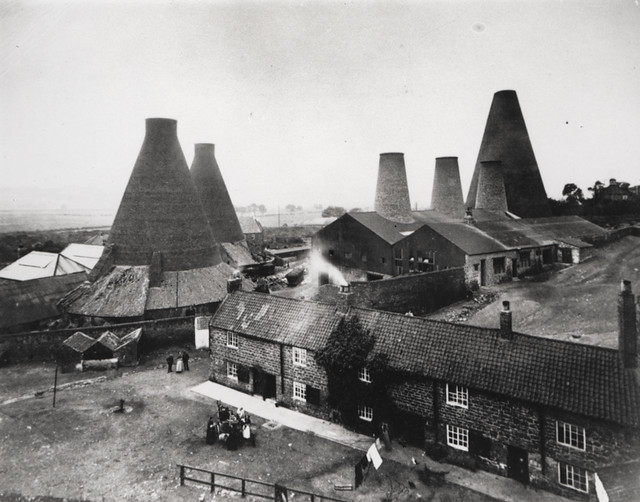Flodden Window

-
Description
Here is the famous old Flodden Window as it is today, somewhat the worse for the passage of 500 years. It's in the parish church of Middleton, Lancashire, in the north of England, which is dedicated to St Leonard. The window was rescued from a state of near disintegration in the 19th century, and reassembled creating two main panels where there had originally been three. A 21st century conservation exercise would have been entirely different, and much was lost. In a few parts it resembles little more than a jumble of fragments, although throughout nearly all of it the sense and some of the quality of the window is clearly preserved. Luckily a few surviving contemporary written descriptions, engravings and paintings give an interpretation of the window as it originally was and provide further evidence of the full story. The window was originally commissioned in 1515 by Sir Richard Assheton, who remodelled the whole church at that time, to commemorate the Battle of Flodden, AKA The Battle of Flodden Field or Branxton Moor - 9th September 1513, in which James IV's invading Scots (the 30,000 invaders included around 5,000 French) were utterly defeated by the slightly smaller English force in the largest ever (as I write) battle between England and Scotland and one of the most disastrous military engagements of all time from a Scottish point of view. A company of Middleton archers, led by Sir Richard, achieved notable success in the battle as part of the English victory. The Flodden Window depicts in detail seventeen principals among the Middleton Archers, their leader Sir Richard and his wife. The window shows each archer wearing a blue court mantle, carrying a bow stave with each archer's name above it, with their leader and his wife wearing scarlet cloaks; they are all kneeling in prayer before leaving for the battle. Chaplain among the archers was one Henricus Taylyer (Henry Taylor) depicted at their head, my great, great, great ... great, great grandfather. The window is historically very important - it is reputed to be the oldest war memorial in the world, specifically because the archers are named in the window itself. A good account of the battle is http://en.wikipedia.org/wiki/Battle_of_Flodden_Field" >here and http://www.ourpasthistory.com/England/the-battle-of-flodden-field-or-branxton-moor" >another here - needless to say there are many others, for the most part leaning heavily on accounts given by the victors. -
Owner
penguinbush -
Source
Flickr (Flickr) -
License
What does this mean? Attribution-NonCommercial-NoDerivs License
-
Further information
Link: https://www.flickr.com/photos/65724059@N00/2857765106/
Resource type: Image
Added by: Simon Cotterill
Last modified: 9 years, 1 month ago
Viewed: 2820 times
Picture Taken: Unknown -
Co-Curate tags





